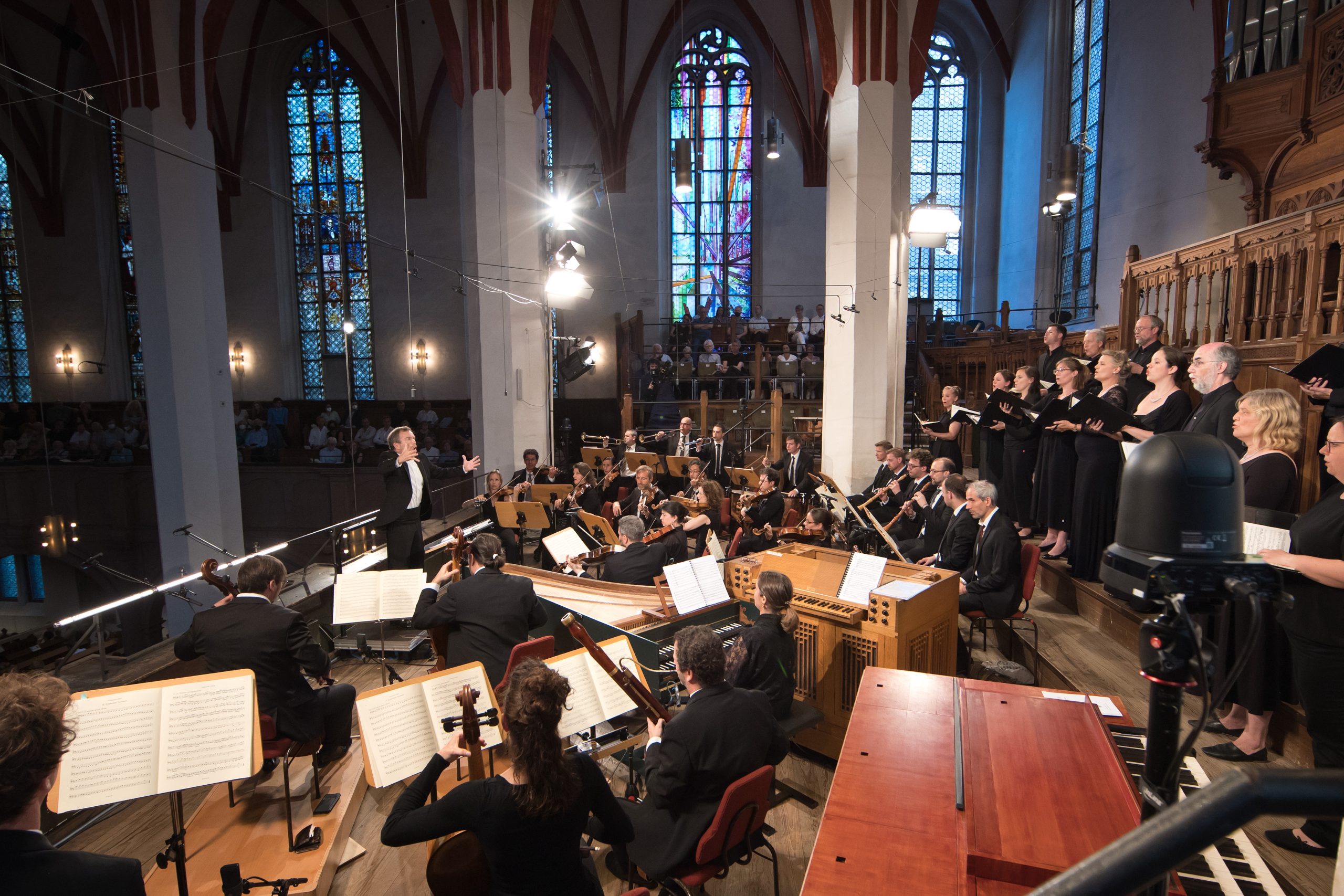It was only a fleeting visit. But even a fleeting visit to the Bach Festival in Leipzig is not to be spurned if you’ve not previously visited the city in which the majority of Bach’s greatest sacred works were composed. Their composition of course formed part of his duties as Kantor of the Thomaschule, the choir school that served to provide choristers for Leipzig’s churches, most importantly the Nicolaikirche, at that time the principal town church, and the Thomaskirche.
First impressions of 21st-century Leipzig to a new visitor are likely to be of a city positively seething with life and energy, not so surprising when one learns it is home to one of the largest student populations in Germany. This bustle and vitality spills over into the annual Bachfest, which far from being restricted to the hallowed ground of the churches in which Bach worked or concert halls includes among nearly 150 events popular concerts that take over the central market square.
This year’s festival was held under the theme ‘Bach – We Are Family’, a motto certainly appropriate for the concert I attended in the Thomaskirche on 11 June. It was given by Les Talens Lyriques under their director Christophe Rousset, with the Vocalconsort Berlin and soloists Rachel Redmond (s), Hagar Sharvit (a), William Knight (t), and Krešimir Stražanac (b-bar). As in Bach’s day, the performers were situated in the unusually spacious organ gallery, doubtless the reason we know Bach favoured the Thomaskirche for larger-scale choral works. The programme was an intriguing one, if curious by modern-day tastes. It took the form of a concert given in Hamburg by C. P. E. Bach in 1786, a concert that would be the last given by Bach’s now 72-year-old son. It appears to have served two purposes, one practical, since it was a charity concert, the other Bach’s desire at the end of his life to promote his own legacy and, unusually for the time, include historical works that served to preserve the heritage of his father and Handel, his father’s great contemporary.
Rousset’s reconstruction made little attempt at pure historical accuracy, not least because he used only the smallish choir possible in the Thomaskirche gallery (three voices per part), when accounts of the Hamburg concert tell us C. P. E employed a large choir that included amateur women singers with Bach’s professional males. Notwithstanding the use of small numbers made the performance of Credo from the B-minor Mass especially interesting to one long ago convinced by the Joshua Rifkin/Andrew Parrott argument in favour of Bach’s use of one-voice-per-part in his choral works. From where I sat in the pews facing the nave near the front of the church contrapuntal sound tended to become confused in quicker music, but sounded much better in slower music and, significantly, at its best with solo passages such as the duet ‘Et in unum’, where the sweetness of the strings was also noteworthy. It would of course be idle to try to draw too many conclusions from such a brief encounter in one place in the Thomaskirche, especially as I’m told there was more wood in the church in Bach’s day; that may well have soaked up more of the resonance. Notwithstanding it made for a fascinating, thought-provoking experience.
Credo, which having been written as part of a work designed for the Catholic court in Dresden could never have been performed in the Thomaskirche in Bach’s day, was in fact the only work of J. S’s to be included, the remainder being devoted to two excerpts from Messiah, ‘I know that my redeemer liveth’ and ‘Hallelujah’, given the context incongruously if very well sung in English. The remainder of the concert featured music by C. P. E himself, most notably in his Magnificat in D, originally composed in 1749 as an informal application to succeed his father as Thomaskantor, but here given in the version adapted for Hamburg that added three trumpets. As my illustration shows,Rousset used players employing ‘holeless’ trumpets and to exciting effect (they can be seen to the far right of the orchestra). The performances by choir and orchestra throughout were excellent, though the solo singing was more variable, the best of it coming from the outstanding young Croatian bass Krešimir Stražanac. But this was not really an occasion for detailed critical analysis, rather for this listener at least an intensely moving opportunity to hear the music of Bach and his most talented son just a few metres from where the remains of the great Kantor now lie at rest after their reburial in the chancel after the Johanniskirche was bombed in World War II.
Brian Robins
PHOTO CREDIT: Christophe Rousset directs Vocalconcert Berlin and Les Talens Lyriques in the Thomaskirche, Leipzig © Bachfest 2022
